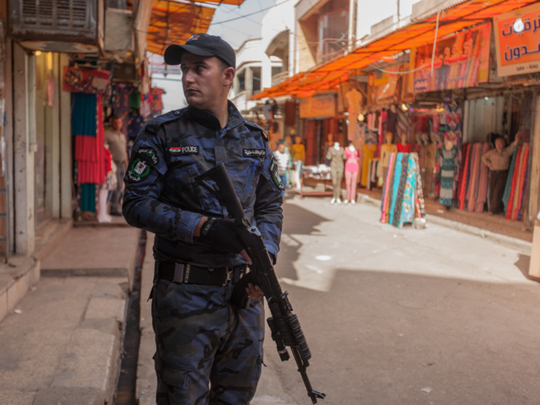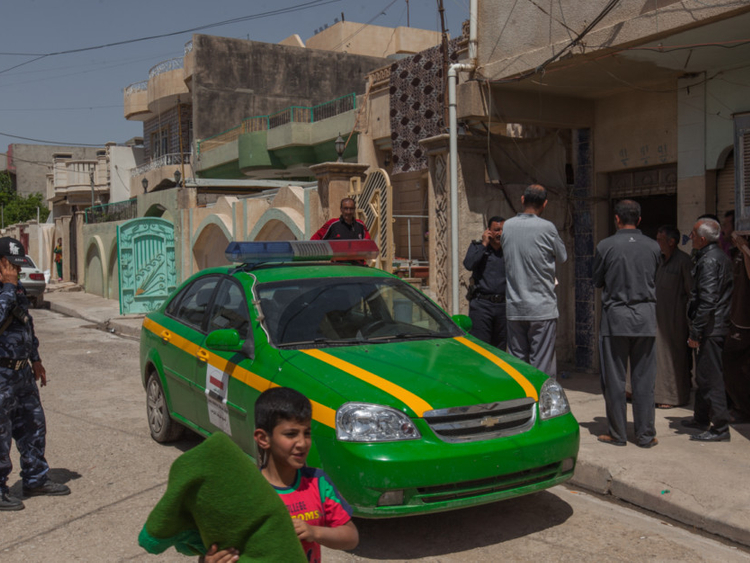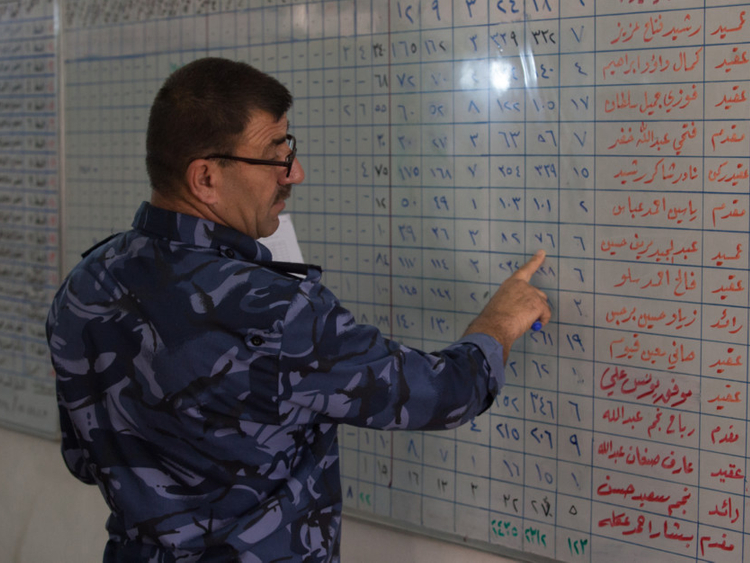
Mosul: Prime Minister Haider Al Abadi of Iraq announced Thursday the liberation of Tal Afar, one of the last cities that had been under the control of Daesh, after a battle that lasted just 11 days, a further sign that the extremist group’s days of administering territory in Iraq are on the wane.
With that, Al Abadi said, the whole of Nineveh province, which includes the city of Mosul as well as Tal Afar, is now free of Daesh.
Back in Mosul, community police are working hard to restore a sense of normalcy to the war-ravaged city.
Loud sirens ring as a green police car arrives in front of a modest house in Nineveh, an Eastern district of Mosul. An armored car blocks a cul-de-sac road and a veiled woman cries. Taken aback, children wearing colorful joggings and pyjamas are gathered near the place. A few minutes ago, a man hung himself in the small court of this house.
A group of policemen are asking the neighbours what they know about the man—apparently he was a chain smoker, fond of video games and recently lost custody of his children.
As displaced Iraqis return back to their homes—or what is left of them—in Mosul, police have taken up the intimidating task of restoring order.
Colonel Wathaq Al Hamdani, head of the police of the province of Mosul, smokes his cigarette intensely.
For months, he has managed daily operations, street patrols, and arrests of Daesh sleeping cells still present among the population, and the complaints of numerous civilians, who swear that their neighbors collaborated with Daesh.
“We receive approximately 50 reports like this every day,” Al Hamdani told Gulf News.
Nineveh police have set up a special number so that the civilians can speak freely and annonymously.
“Every day, we catch between 10-12 terrorists hidden among the population. The good news is that in this city, civilians help us a lot,” Al Hamdani notes.
It wasn’t always the case, as many Iraqis before, especially in the Western Sunni provinces, held deep distrust for the Iraqi state, viewed as pro-Iranian and pushing a Shiite agenda.
Although some Iraqi Sunnis still feel this way, this is slowly changing.
But not all police are viewed as vigilantes.
On a famous Facebook page where the inhabitants of Mosul can make anonymous complaints, a man from Al Tayaran complains that police forcefully took over his house and turned it into a police station.
Back at the police station, the telephones do not stop ringing.
A man roars the GPS coordinates of a corpse discovered in the Nineveh suburb of Mosul.
A suspect is interrogated with bandages on his eyes. Policemen slap and strike him violently. The man is suspected of having been a member of Daesh.
Suddenly, a policeman enters the room and demands us to leave.
Mohammad Al Naste, 44, in blue military dress, is lieutenant colonel of the Nineveh police.
Besides the emergency calls from civilians, he has to juggle two mobile phones reserved for his two wives, both of whom worry because they know he is exposed to danger on the field.
“Today, more people come to the police station to file complaints than before. They trust us again, even if some are still afraid. In fact everything depends on their district. If they come from a district that is still dangerous, it is always a risk to be seen with the police, and it is better to call instead,” Al Naste says.
Apart from Daesh, Iraqi police have to deal with looters.
Five gangs were recently caught, according to Al Hamdani.
“We do not want to provoke panic among the civilians, which is why we limit our daily patrols. I do not want the population to see armed policemen every day”, Al Naste underlines.
Al Naste says that Nineveh is in urgent need of 20,000 additional policemen—after Daesh occupied the territory only 9,000 out of 28,000 remained.
Baghdad will be sure to extensively vet the men chosen for the job.
“Some stayed in Mosul for a long time after the arrival of Daesh. We are not accusing them of cooperation, but we have to make sure. Myself, when I fled the arrival of Daesh, I had only 300 dollars in my pocket, which made it hard for me to escape. So, I understand their circumstances,” Al Hamdani said.
Quentin is a roving freelance journalist














